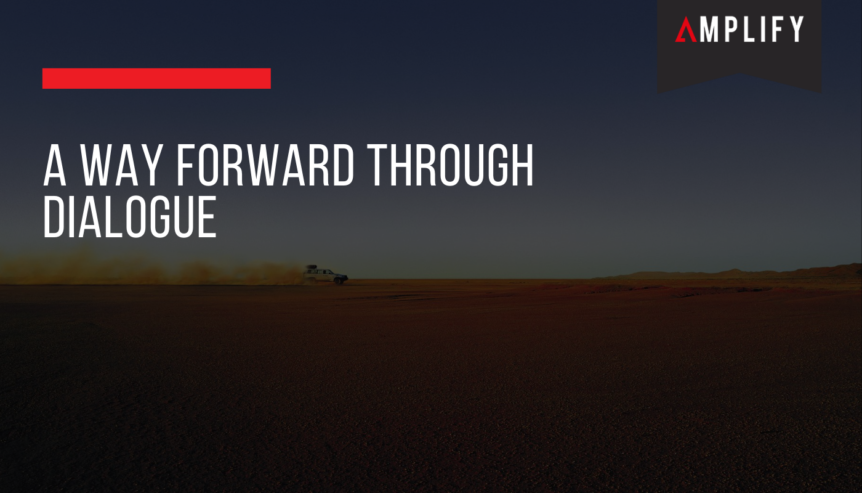We hear a lot about systemic racism in American and how it’s shaped the current reality they’re facing. But what about Australia?
On a recent volume of The Psychology of Entrepreneurship, I sat down with highly respected Indigenous elder and leader Mark Yettica-Paulson. Mark is from the South East Queensland and North East NSW regions of Australia, and comes from the Birrah, Gamilaroi and Bundjalung peoples.
Mark is the Founder and Chief of Super Native Unlimited, specialising in creative and cultural leadership development. He’s worked closely with National Australia Bank, The Australian Football League, Medibank Australia, Australia Post and The Foundation for Young Australians. He’s also the Joint Campaign Director for Recognise, the recent campaign for a National Referendum to Amend the Australian Constitution to acknowledge the Aboriginal people and to support the removal of discrimination. Everything Mark does is to bring awareness to the real history of Australia and how we can forge a way forward through dialogue.
Australia is where I live, and even though I come from India, this is my home, and I’m an Australian. And since it’s my home, I feel responsible for educating myself to its real history, the history that isn’t taught in Australian schools.
But this article isn’t about that, exactly. It’s about what do we do once we do know that real history? And once we know about the systemic racism that Indigenous Australians have been facing for generations?
Holding a Mirror Up to Your Own Behaviour

To answer those questions, consider this analogy from Mark: “A dishevelled look
ing white person, white male, the same age as me, walks into an airport lounge and they go “Ah, they’re an artist, or maybe they
’re a rockstar or a film director. They’re clearly an edgy
kind of creative type.” I walk in there dishevelled, and it’s like “Excuse me, sir, I don’t think this is where you need to be, you need to be out there.”
That sort of thing happens to Indigenous people in Australia all the time. Maybe you’ve even had those sorts of thoughts yourself. It’s ok. The purpose of this isn’t to shame you, it’s to, as Mark puts it, “hold a mirror up to your own behaviour”.
The next time you encounter a person, and you find yourself jumping to stereotypes in your brain, “What are they doing here? Should I be scared?” or something to that effect, stop yourself. Have a conversation with yourself about your prejudice. Those thoughts might not even be your fault, but they’re now your responsibility. Deal with them.
The Mental Gymnastics of Dealing With Racism
Racism has been proven to physically affect the lives, economic circumstances and even mental health of those that deal with it. “You can imagine the mental gymnastics that happens when you’re like “Ok, I’m being put down on the land that is my inheritance from a thousand generations, why aren’t I walking around like I am the prince of this region?”, Mark explains.
What a mindf**k. Imagine that. You come from a people 1,000 generations deep, on the very land you’re standing on, and someone is looking at you like you don’t belong. How do you grapple with that?
Finding a Way Forward Through Dialogue
The burden is not on the recipient of the racism, it’s on the person dishing it out. So how do we stop producing racists? Through dialogue.
“For me, the way forward is to not find the right word or the right statement to make,” says Mark, “but to find the right relationship. The relationship that is required is one where we are focused on building and creatively building, trust amongst all of us, enough trust for us to have an open dialogue.”
And that’s what Mark does. He goes around the country and opens up the lines of communication between Indigenous and non-Indigenous Australians through trust so that we can begin to understand. Not to just understand their history, but also their pain, and learn how to carry that with us always. So when we meet someone different than us, we jump to understanding instead of judgement.

For more on this eye-opening conversation with Mark Yettica-Paulson check out Volume 37 of the Psychology of Entrepreneurship podcast hosted by Ronsley Vaz.
Author: Ronsley Vaz
Ronsley is the founder & chief day dreamer at AMPLIFY. He is an author, speaker & serial entrepreneur.
He has a Masters’ degree in Software Engineering and an MBA in Psychology and Leadership. He is known as the creator of We Are Podcast – the first Podcasting Conference in the Southern Hemisphere, and the host of The Bond Appetit Podcast and Should I Start a Podcast. He has an audience of over 3 million in 133 countries.
Podcast: Play in new window | Download
Subscribe: RSS

